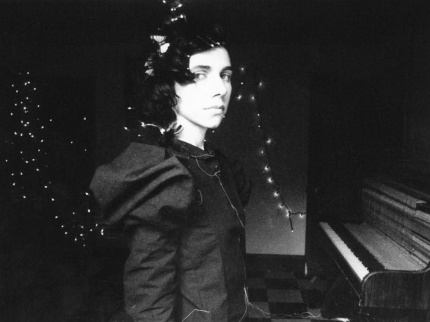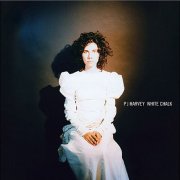 With the temperature dropping, it's time to find someone to keep you warm. Find your hookups with our online dating guide!
With the temperature dropping, it's time to find someone to keep you warm. Find your hookups with our online dating guide!
- Alternative Rock
- 2007
- Buy the CD
Reviewed by Michael Fortes
()
And from the opening chords of “The Devil,” the gut feeling is given some validation. The piano riff and percussion hint at a delicate, Burt Bacharach-like production. One almost expects Dionne Warwick to start singing. But instead, Polly chimes in, ever so delicately and carefully, singing about the Devil who has wandered into her soul. A spooky tone is set right away, just in time for Halloween, and it never lets up, song to song. Next song? “Dear Darkness,” taken at an even slower pace, with minimal percussion, a piano, a solo vocal, and not much else – just as spooky sounding, maybe even more so. Burt is cast aside for good. When darkness is personified, you know you’re hearing some serious gothic doom from the corner of a lonely soul’s echo-laden bedroom. In fact, listening to the fade of “Grow Grow Grow,” you can hear what sounds like the click of one’s finger stopping ye olde four-track cassette machine above the hissy tone of said lonely room.

These 11 under-four-minute meditations also share in common, besides tone, a complete lack of regard for pop song structure. None of these songs ever aspire for hit status. Rather, they exist as pure expressions. Simply listen to “The Piano” to hear the point. You’ve probably heard a million pop songs expressing the sentiment “I miss you,” and yet, when Polly repeats this phrase over and over in “The Piano,” it’s as if her high, lonesome soprano is uttering it for the first and most authentic time in anyone’s memory. Somebody get this girl a telephone!
Others, like “Broken Harp,” end abruptly, just as one expects an earlier repeated phrase to, well, repeat itself again. Granted, she may be singing that she fell asleep half undressed at the close of the song, but one hardly expects her to leave the song half undressed too. It can be jarring, and yet, it’s perfect.
Almost, anyway. “The Mountain” ends the disc with a climax of near-screeching, witchy trills that unfortunately threaten to throw the disc off balance when the trills slide into discordant intervals here and there. It could induce nausea in those with a weak stomach, but fortunately we can stop the disc after track 10. Besides, 11 is an uneven number, and this isn’t Spinal Tap. Or is it?
You can follow us on Twitter and Facebook for content updates. Also, sign up for our email list for weekly updates and check us out on Google+ as well.











